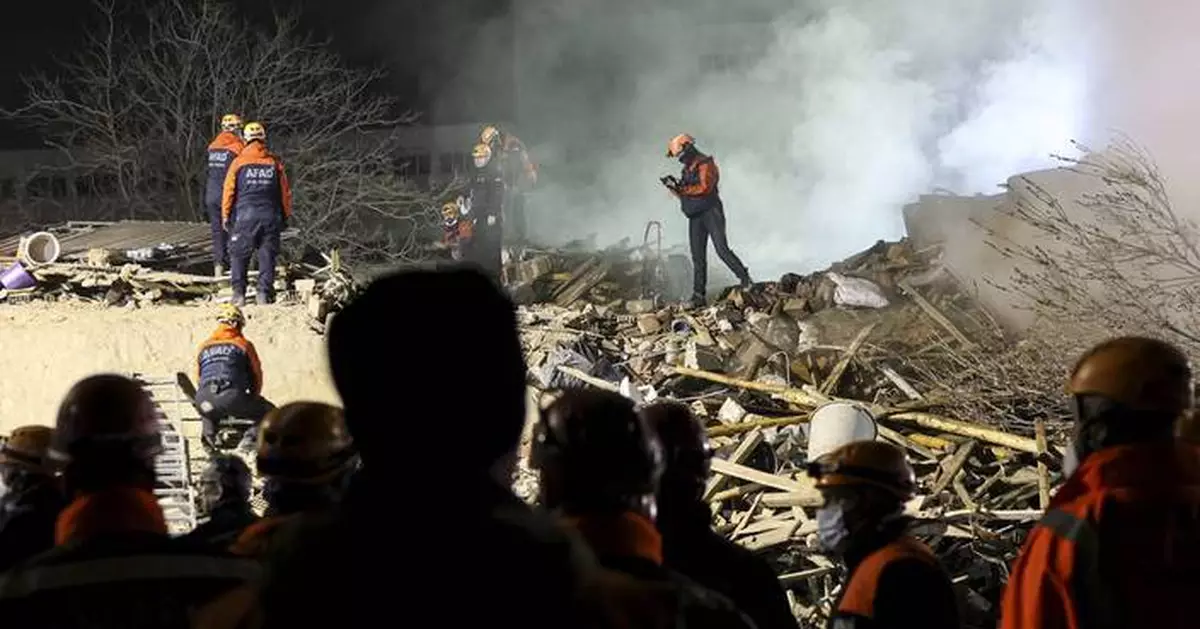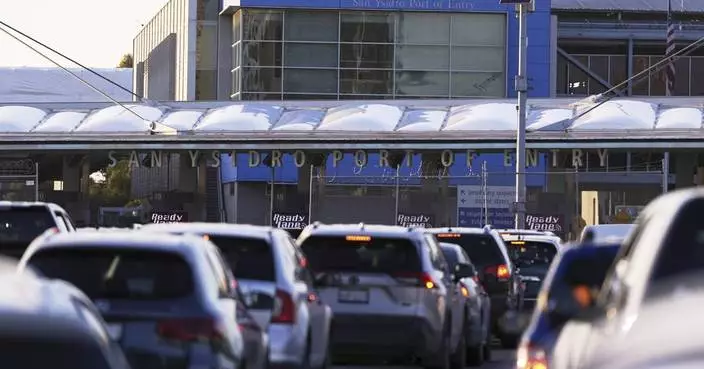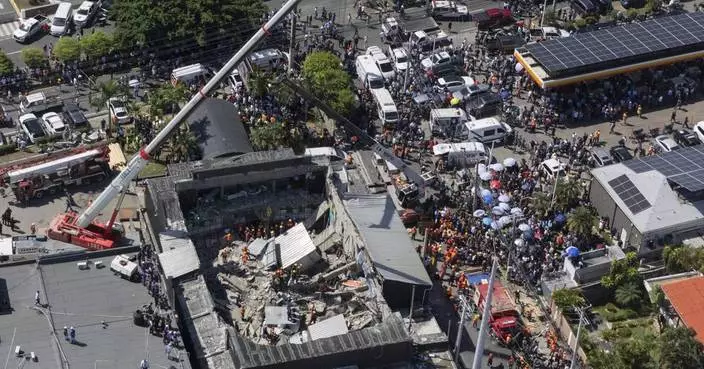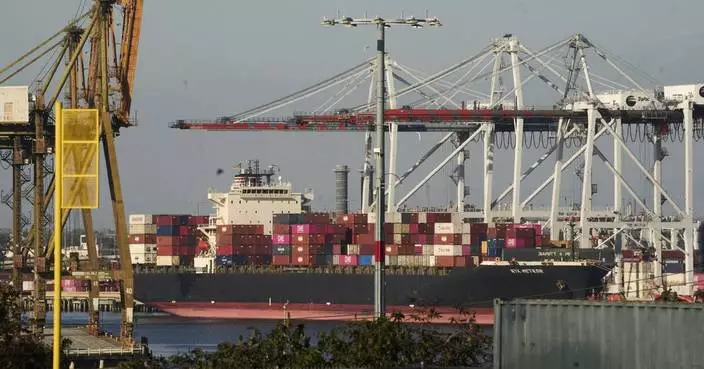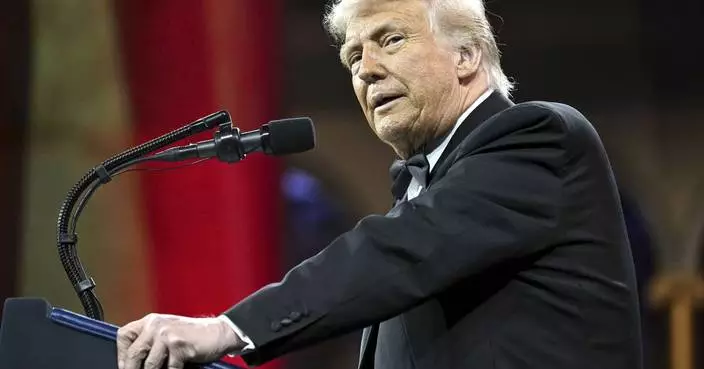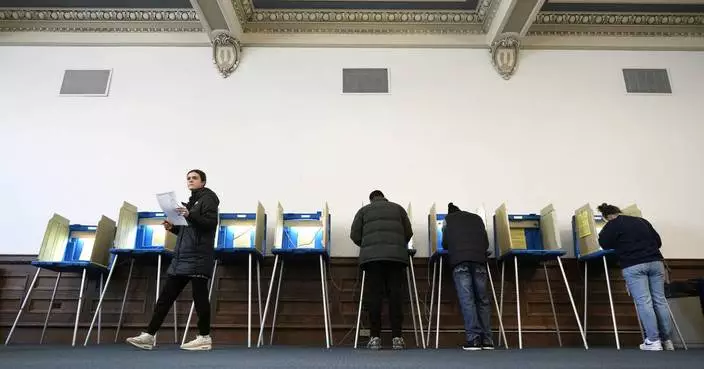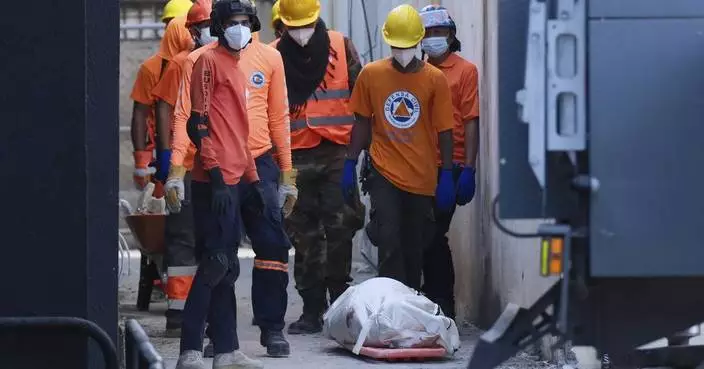ISTANBUL (AP) — Rescuers pulled the bodies of a 23-year-old woman and a man believed to be her husband from under a collapsed apartment building in central Turkey on Saturday, state-run media said.
Three other people were rescued from the wreckage and were being treated in a hospital, Anadolu Agency reported.
The collapse comes amid renewed focus on building safety following the deaths of 78 people in a fire Tuesday that ripped through a 12-story hotel at a ski resort in northwestern Turkey. Investigators are examining whether proper fire prevention measures were in place.
Interior Minister Ali Yerlikaya said on Saturday that 79 people were registered as living in the four-story apartment block in the city of Konya, some 260 kilometers (160 miles) south of the capital, Ankara.
Earlier, Yerlikaya said the last two people remaining under the debris were Syrian nationals. He added that the cause of the building collapse was not immediately known. “If there is a fault, negligence or anything else, we will learn it together,” he told journalists.
TV images showed emergency workers sifting through a large pile of rubble Saturday morning following the collapse the previous evening. Anadolu Agency reported that four people linked to businesses operating on the building's ground floor were detained as part of the investigation.
The second anniversary of an earthquake that hit southern Turkey and north Syria, killing more than 59,000 people, is just two weeks away. The high death toll at the time was due in part to building safety regulations being ignored.
In 2004, a 12-story apartment building collapsed in Konya, claiming the lives of 92 people and injuring some 30 others. Structural flaws and negligence were blamed for the collapse.
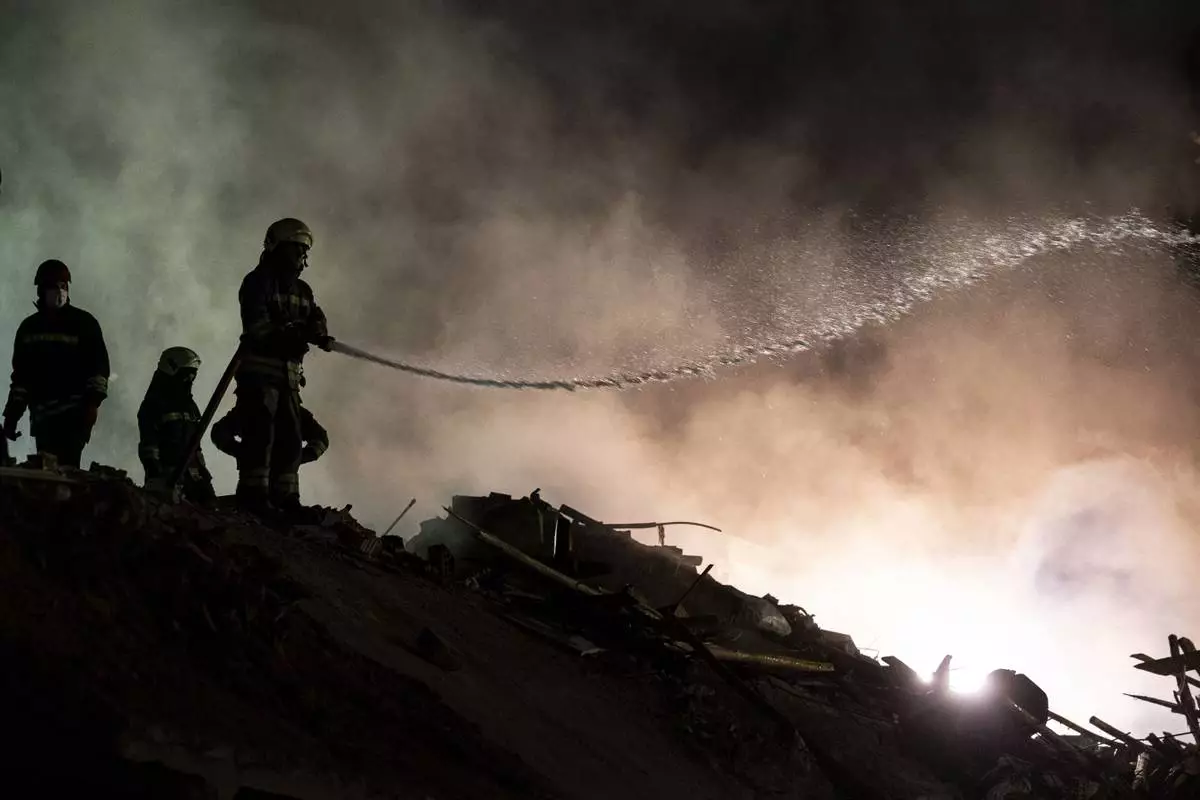
Firefighters work in the aftermath of a building that collapsed in the city of Konya, central Turkey, early Saturday, Jan. 25, 2025. (Ugur Yildirim/Dia Photo via AP)
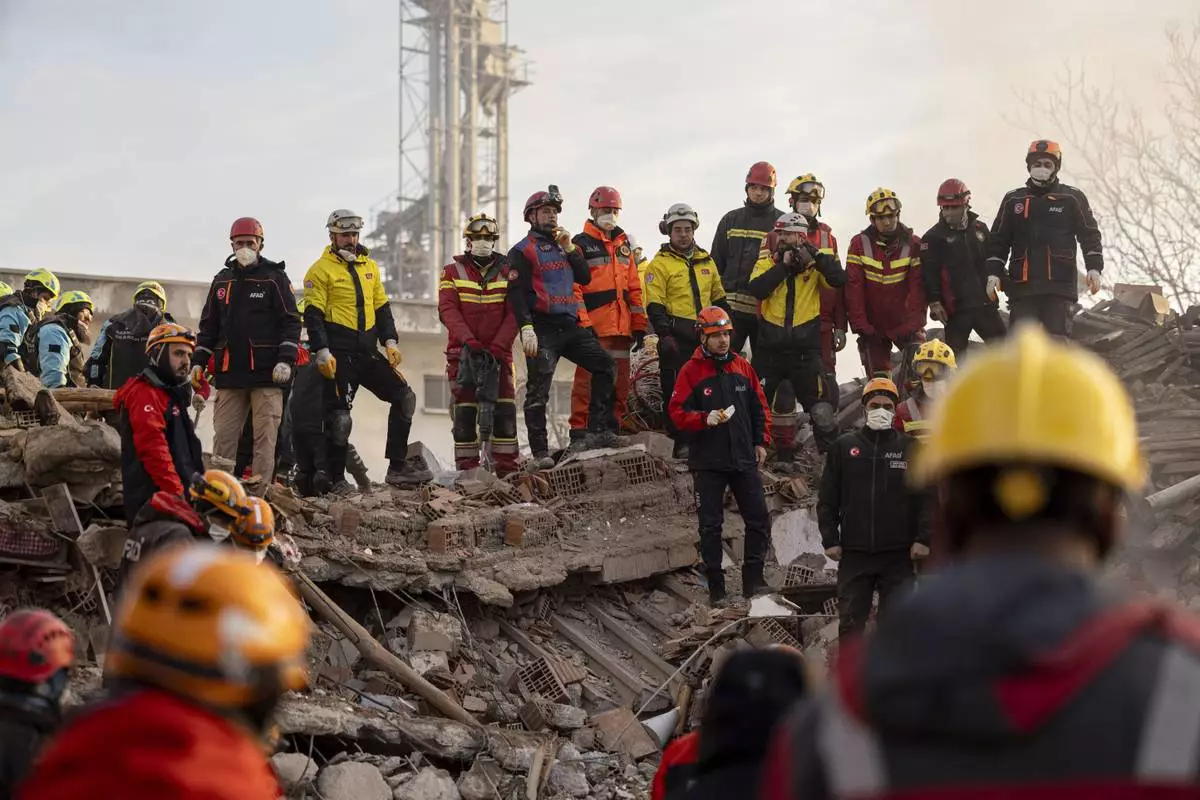
Emergency and rescue team members work in the aftermath of a building that collapsed in the city of Konya, central Turkey, early Saturday, Jan. 25, 2025. (Ugur Yildirim/Dia Photo via AP)
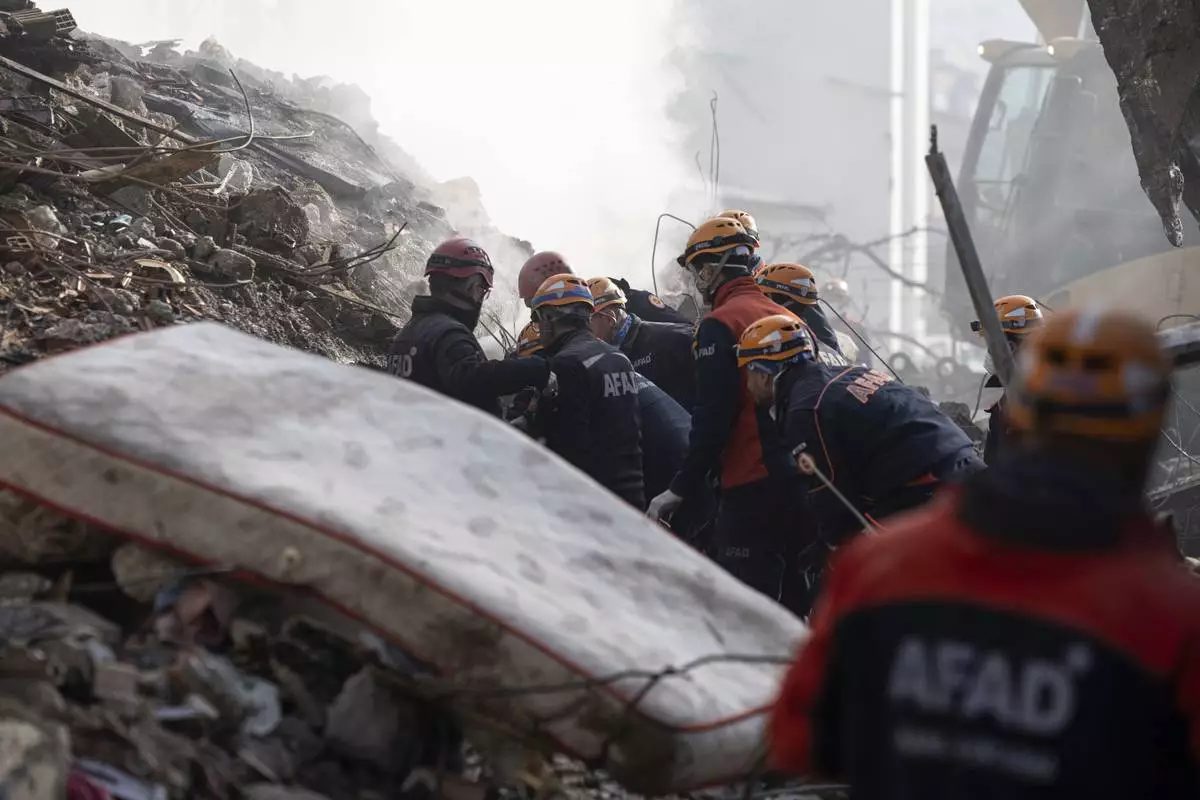
Emergency and rescue team members work in the aftermath of a building that collapsed in the city of Konya, central Turkey, early Saturday, Jan. 25, 2025. (Ugur Yildirim/Dia Photo via AP)
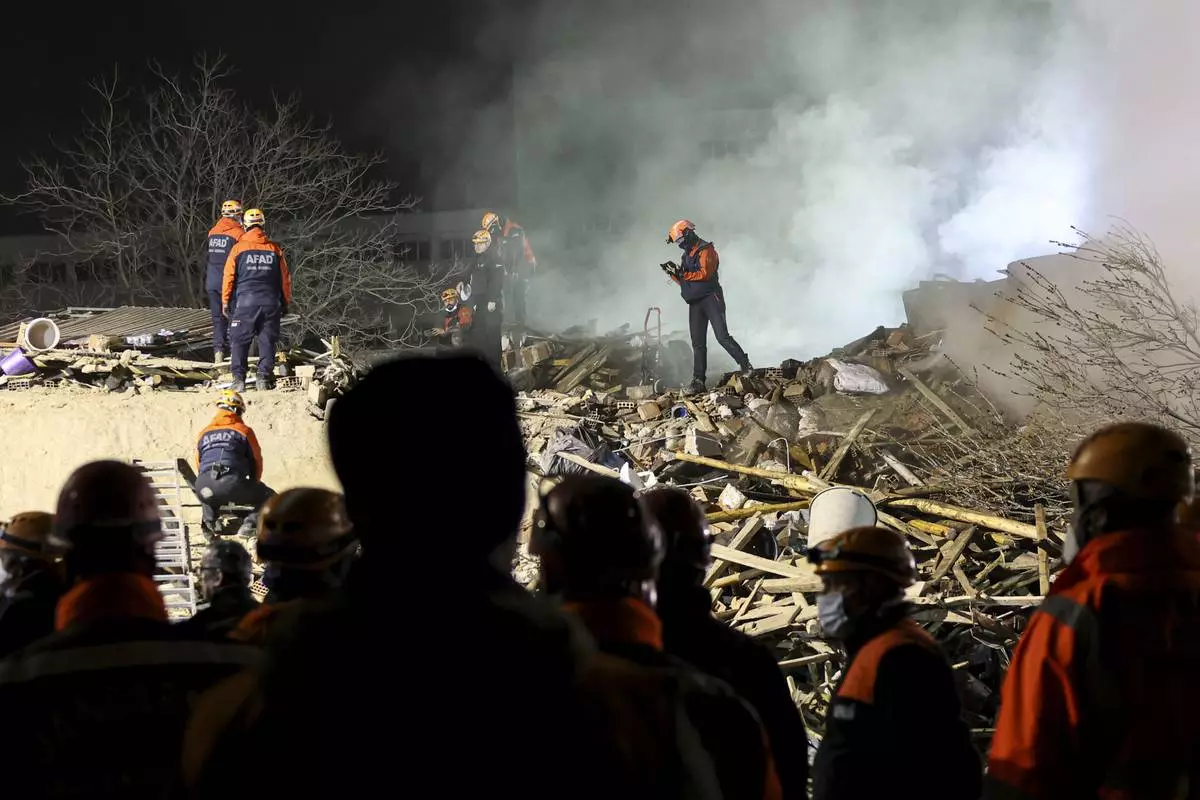
Emergency and rescue team members work in the aftermath of a building that collapsed in the city of Konya, central Turkey, early Saturday, Jan. 25, 2025. (Ugur Yildirim/Dia Photo via AP)
The European Union’s executive commission said Thursday it will put its retaliatory measures against new U.S. tariffs on hold for 90 days to match President Donald Trump ’s pause on his sweeping new tariffs and leave room for a negotiated solution.
Treasury Secretary Scott Bessent told reporters on Wednesday that the pause was not a result of the brutal sell-offs in the financial markets but rather because other countries are seeking negotiations. Trump later told reporters that he pulled back on many tariffs because people were getting “yippy” and “afraid.”
Here's the latest:
“This will give us the opportunity to negotiate the reduction of tariffs so that the playing field is leveled,” said Lesotho Minister of Trade and Industry Mokhethi Shelile.
Lesotho, which relies on making and exporting clothes to the U.S. for brands like Levi’s, had feared almost half its clothing sector could be put out of business.
In Madagascar, which provides 80% of the world’s vanilla, exporters said there was now more time for government and industry officials to meet and plot a way forward.
And South Africa Trade and Industry Minister Parks Tau said on Radio 702 that while his country received confirmation that proposed export tariffs by the U.S. were paused, the 10% baseline tariff meant “it is not completely off.”
South Africa is one of more than 30 countries eligible for tariff-free access to the American market under the African Growth and Opportunity Act agreement that has been in place for 25 years. Many of them fear that Trump’s tariff tactics will mean the agreement will not be renewed.
Trump’s top economic advisers will gather a day after the president announced he was suspending for 90 days import taxes on dozens of countries while escalating his trade war with China to discuss the president’s options moving forward.
“The chief of staff’s office has called all the principals who have, you know, skin in the game and discuss their views about how this should go,” Kevin Hassett, director of the White House National Economic Council, told reporters on Thursday.
Hassett added that 15 countries have already presented offers to the administration aimed at getting Trump to drop his reciprocal tariffs. He did not detail which countries have presented offers.
This morning, at 10 a.m. ET, Trump will receive his intelligence briefing in the Oval Office.
At 11 a.m., he will participate in a cabinet meeting.
At 12:30 p.m., he will attend the swearing-in ceremony for the solicitor general.
Later, at 4 p.m., he will participate in a bill signing in the Oval Office, according to the White House.
World markets soared on Thursday, with Japan’s benchmark jumping more than 9% as investors welcomed Trump’s decision to put his latest tariff hikes on hold for 90 days.
In early trading, Germany’s DAX initially gained more than 8%. By midmorning, they were up 5.3% at 20,720.86, while France’s CAC 40 in Paris gained 5% to 7,204.23. Britain’s FTSE 100 surged 4.0% to 7,983.37.
Chinese shares saw more moderate gains, given yet another jump in the tariffs each side is imposing on each other’s exports.
The future for the S&P 500 was down 2.1%, while the contract for the Dow Jones Industrial Average dropped 1.6%.
Analysts had expected the global comeback, given that U.S. stocks had one of their best days in history on Wednesday as investors registered their relief over Trump’s decision.
▶ Read more about the global markets
China is reaching out to other nations as the U.S. layers on more tariffs in what appears to be an attempt to form a united front to compel Washington to retreat. Days into the effort, it’s meeting only partial success with many countries unwilling to ally with the main target of Trump’s trade war.
China has thus far focused on Europe, with a phone call between Premier Li Qiang and European Commission President Ursula von der Leyen “sending a positive message to the outside world.”
That was followed by a video conference between Chinese Commerce Minister Wang Wentao and EU Commissioner for Trade and Economic Security Šefčović on Tuesday to discuss the U.S. “reciprocal tariffs.”
Wang has also spoken with the 10-member Association of Southeast Asian Nations, while Li, the premier, has met with business leaders. China has “already made a full evaluation and is prepared to deal with all kinds of uncertainties, and will introduce incremental policies according to the needs of the situation,” Xinhua News Agency quoted Li as saying.
▶ Read more about China’s response to Trump’s tariffs
Trump delivered another jarring reversal in American trade policy Wednesday, suspending for 90 days import taxes he’d imposed barely 13 hours earlier on dozens of countries while escalating his trade war with China. The moves triggered a powerful stock market rally on Wall Street but left businesses, investors and America’s trading partners bewildered about what the president is attempting to achieve.
The U-turn came after the sweeping global tariffs Trump announced last week set off a four-day rout in global financial markets, paralyzed businesses and raised fears the U.S. and world economies would tumble into recession.
White House press secretary Karoline Leavitt tried to characterize the sudden change in policy as part of a grand negotiating strategy. But to those outside the Trump administration, it looked like a cave-in to market pressure and to growing fears that the president’s impetuous use of import taxes — tariffs — would cause massive collateral economic damage.
▶ Read more about Trump’s reversal on most tariffs
The European Union’s executive commission said Thursday it will put its retaliatory measures against new U.S. tariffs on hold for 90 days to match President Donald Trump’s pause on his sweeping new tariffs and leave room for a negotiated solution.
European Commission President Ursula von der Leyen said that the commission, which handles trade for the 27 member countries, “took note of the announcement by President Trump.”
New tariffs on 20.9 billion euros ($23 billion) of US goods will be put on hold for 90 days because “we want to give negotiations a chance,” she said in a statement.
But she warned: “If negotiations are not satisfactory, our countermeasures will kick in.”
Trump imposed a 20% levy on goods from the EU as part of his onslaught of tariffs against global trading partners but has said he will pause them for 90 days to give countries a chance to negotiate solutions to U.S. trade concerns.
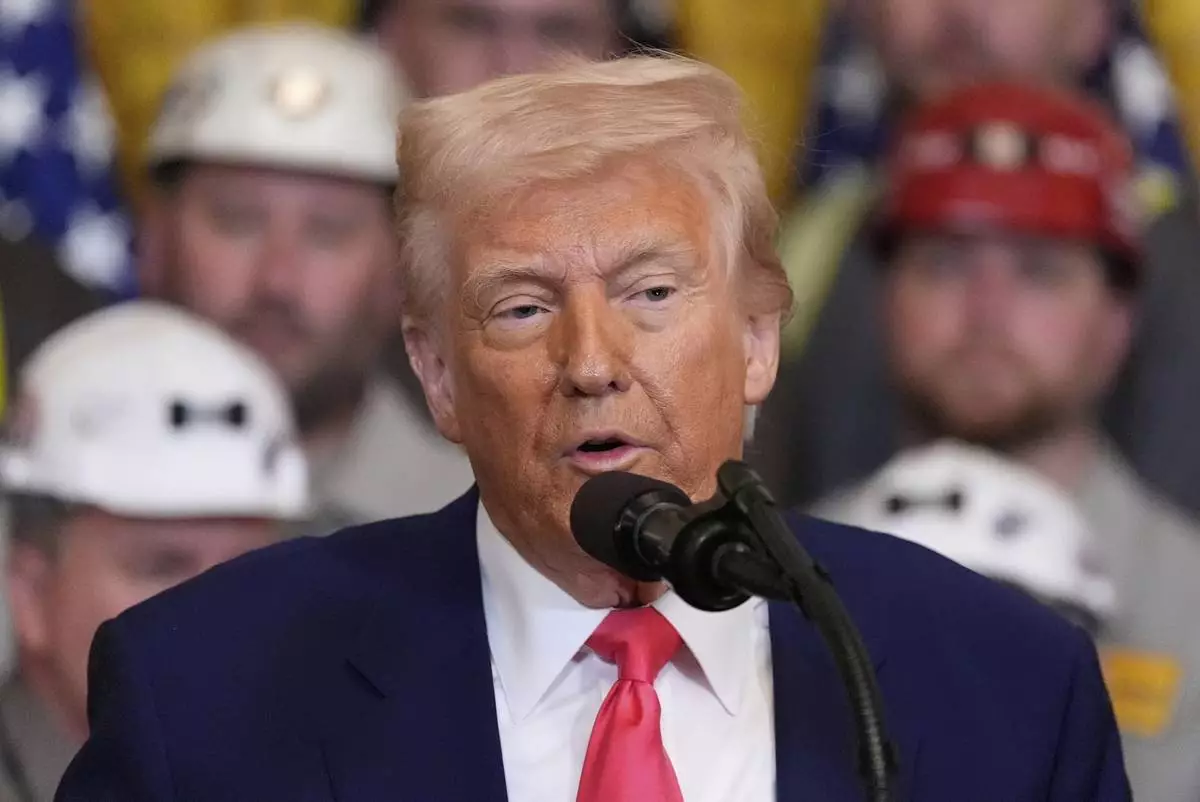
President Donald Trump speaks during an event on energy production in the East Room of the White House, Tuesday, April 8, 2025, in Washington. (AP Photo/Alex Brandon)
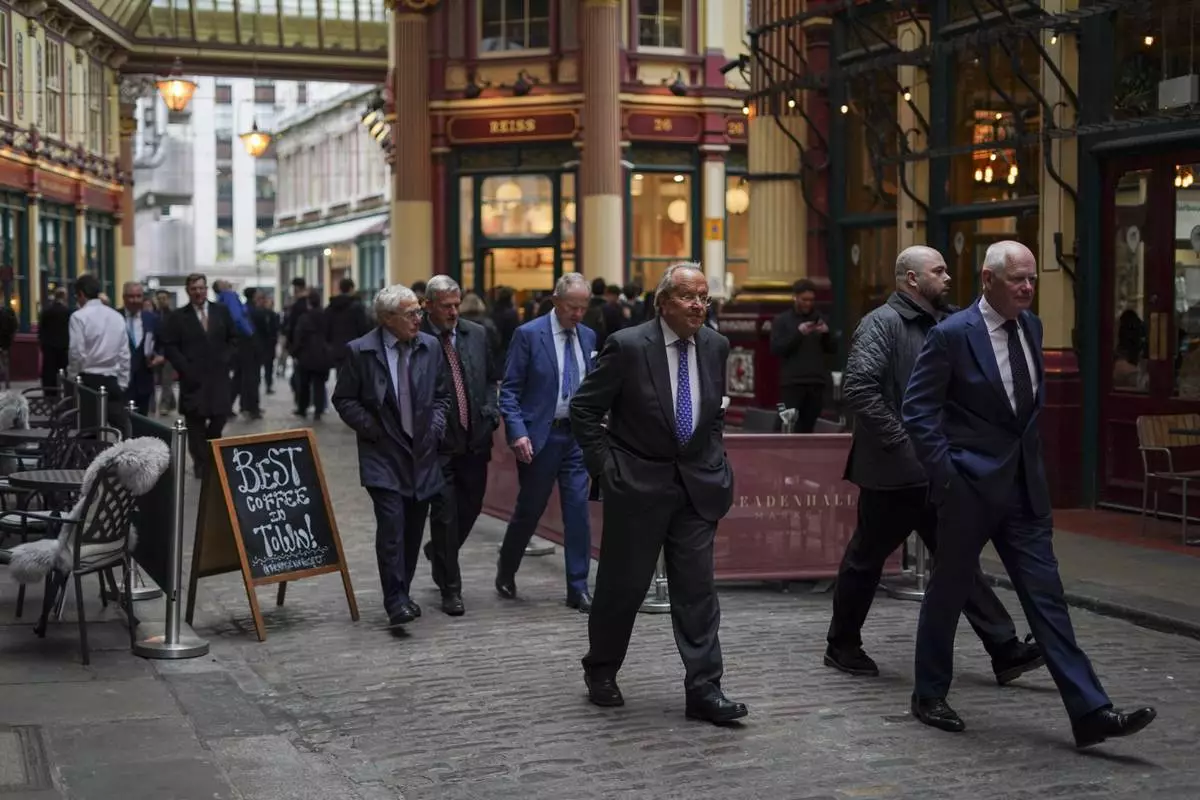
People walk in Leadenhall Market at lunch time, in the financial district, known as The City in London, Wednesday, April 9, 2025. (AP Photo/Alberto Pezzali)
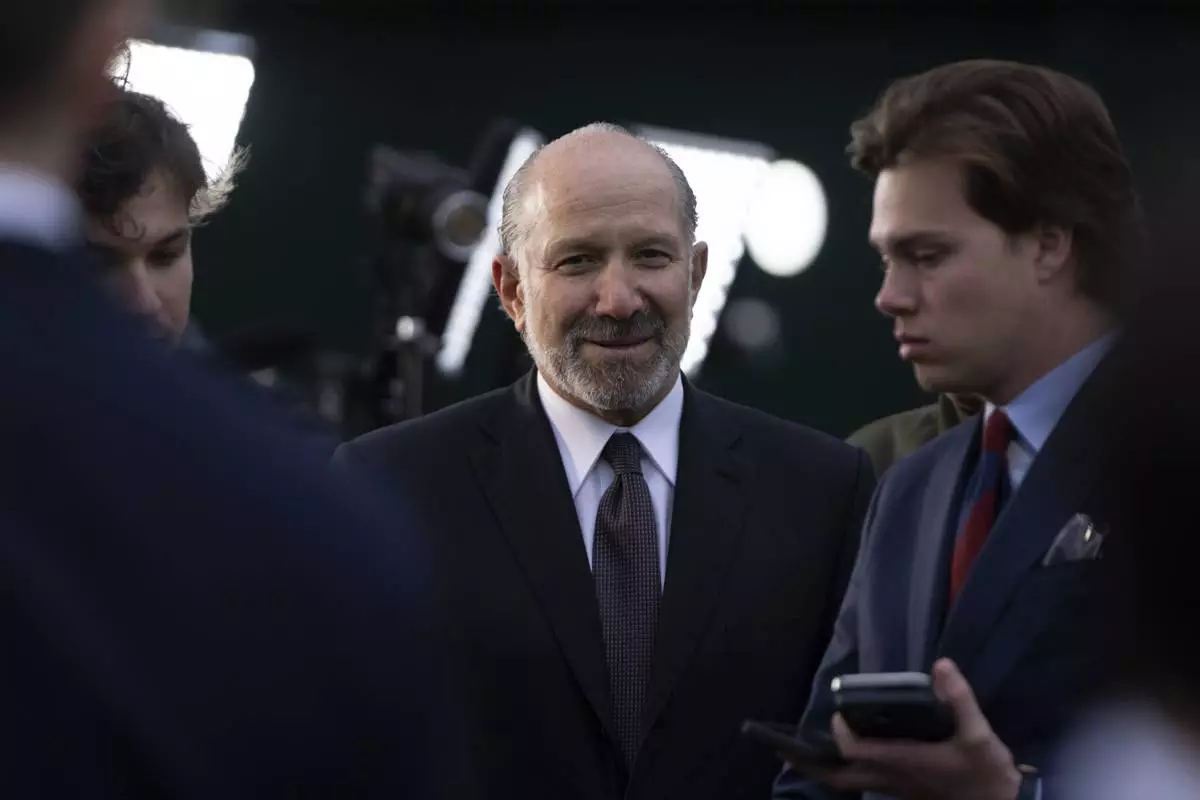
Commerce Secretary Howard Lutnick leaves after doing a television interview outside the White House, Wednesday, April 2, 2025, in Washington. (AP Photo/Mark Schiefelbein)
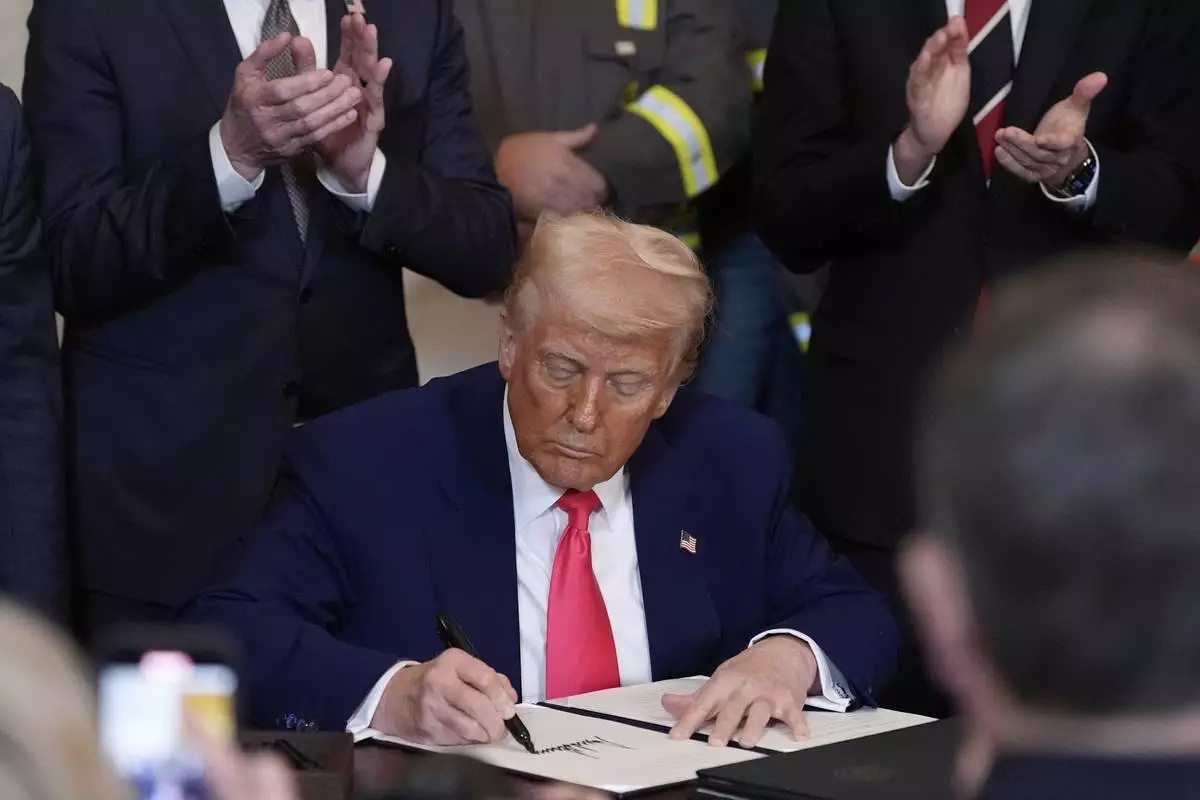
President Donald Trump signs an executive order during an event in the East Room of the White House, Tuesday, April 8, 2025, in Washington. (AP Photo/Alex Brandon)






